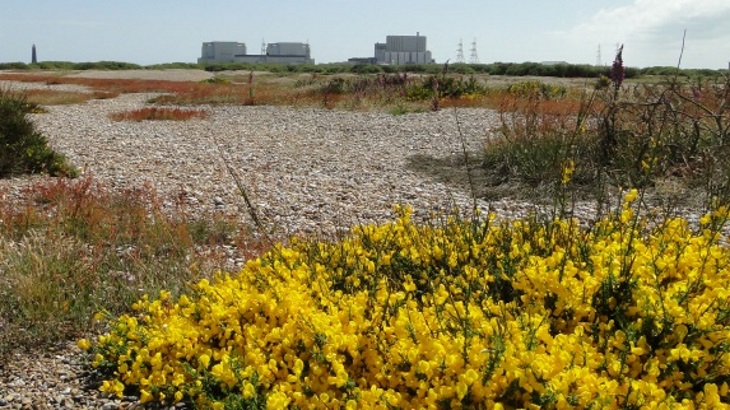The UK's fleet of seven AGRs have met around 20% of the country’s electricity needs over the last four decades. Dungeness B, which started operations in 1983, was acquired by EDF as part of British Energy in 2009, at which point it was anticipated to end generation in 2018. That is 10 years longer than its original design life. The plant has helped the UK avoid the emission of almost 50 million tonnes of CO2 and contributed more than GBP1 billion (USD1.4 billion) to the local economy.
In a statement from EDF yesterday, John Benn, station director at Dungeness B, said: “EDF has had to make a hard decision, but it is the right one. It gives our teams, our community and our business a clear understanding of the future." The defuelling operations - the first stage of decommissioning a nuclear power station - will take "several years", he said, and will provide "ongoing opportunities" for EDF staff and their specialist skills.
Reacting to EDF's announcement, Tom Greatrex, chief executive of the Nuclear Industry Association (NIA) said: "Dungeness B was the first of a nuclear fleet that has saved over 1.2 billion tonnes of carbon emissions, the equivalent of all UK emissions from 2018 through 2020, and far more than any other electricity source. Despite its difficulties, the plant has been of one of the 10 most productive low-carbon assets in UK history."
The retirement of Dungeness B, which is in Kent, in southern England, "underscores the urgency", Greatrex said, of investing in new nuclear capacity to achieve the country's net zero by 2050 target.
"In less than three years, more than half of our nuclear fleet will be gone," he said. "If this base of firm power is not replaced, we will have to rely on gas to stabilise the grid. This fossil fuel dependence will cause higher emissions and higher prices and push our climate goals further from our grasp. Instead, we can choose to invest in nuclear power alongside renewables to secure a green recovery and a net zero future for the UK."
Nuclear is the second biggest source of low-carbon electricity in the UK, after wind power. The country's eight nuclear power plants have a combined land footprint of less than one square mile, the NIA noted.
EDF said the decision on the Dungeness B was taken yesterday, following a series of executive, board and shareholder meetings. Decisions on end-of-generation dates for EDF’s nuclear power stations in the UK are independent of the regulator or government, and are taken by EDF’s licensee board following recommendations from EDF Energy Nuclear Generation Limited’s Executive. To comply with market regulations, once agreed, any change to forecast generation dates must be promptly published on the REMIT transparency website operated by Elexon, and will be published on EDF's transparency website.





_18570.jpg)
_16159.jpg)
_49205.jpg)
_18938.jpg)





